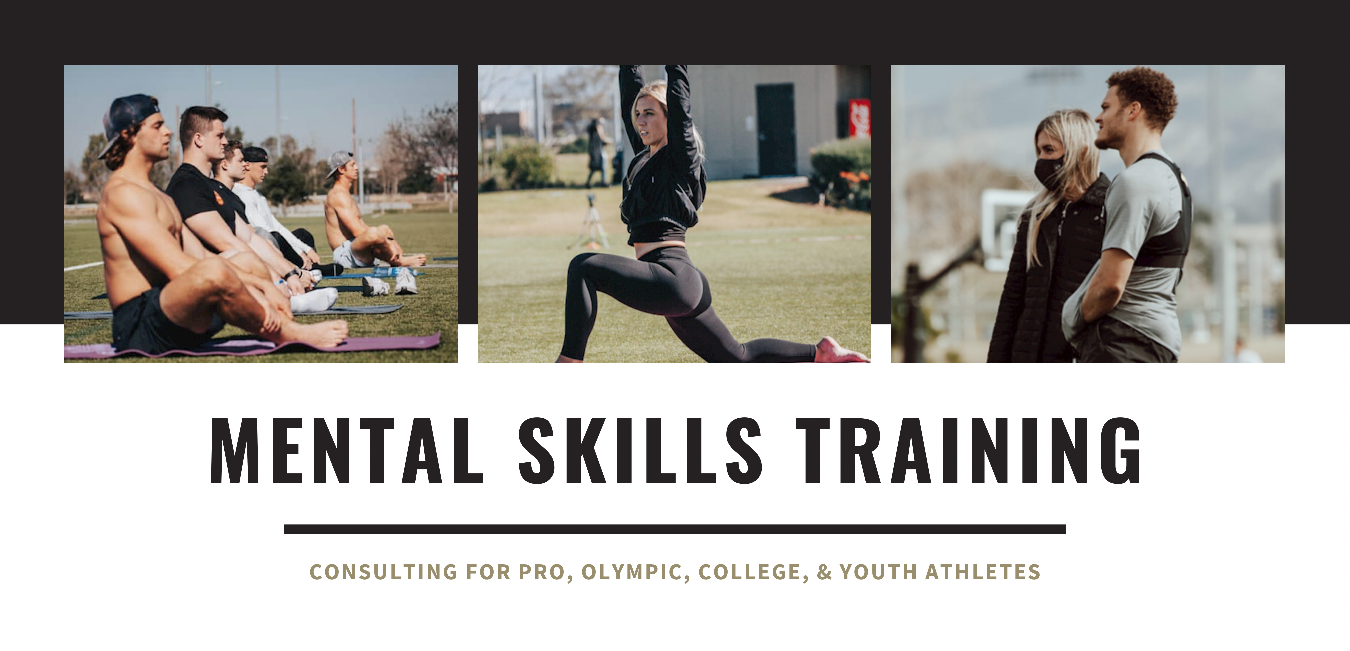The culmination of your blood, sweat and tears is about to be exposed and laid all out on table. It’s showtime. You’ve trained, you’ve sacrificed, you have given your all to get to this moment in time. This could be your first performance or your hundred and first, but afterwards you will be faced with the same questions: Did you do your best? Did you believe in yourself? As an athlete, you show up every day whether you want to or not, right? Your body is there, but is your mind? On those tough days, what do you say to yourself? How do you get through them? What you think, say, and feel is your self-talk. If you are thinking negative thoughts as a result of stress, social comparison, or anything else, you will not perform at your peak. You cannot doubt yourself or feel badly about the work you put in. This is your life, your goals, your dreams, and your time to shine.
Negative thought patterns can creep in from your every day life and feelings of insecurity will follow. It’s the competitive nature to strive for greatness, and in a sense “never be satisfied.” As an athlete, you tend to be innately driven and it is a quality trait to have. However, be aware of downsides to this such as perfectionism, polarized thinking, and distorted thinking patterns. What kind of thoughts do you have? If you notice reservation, fear, and uncertainty, there is work for you to do. Let’s begin…
How to create a Self-Talk Script
Affirmations can help to drive mentality. The more you hear things the more you start to believe them, and the more you believe them the more they become your truth. What are you thinking about; success or failure? Your beliefs create an emotional reaction, or consequence, and this will turn into your behavior.
Writing a self-talk script can be short and sweet, written or recorded for playback, and have added elements such as music or images. Focus on the following steps to create a basic and short script, and from there you can enhance it and tailor it as you find out what you like best.
Step 1: Decide the purpose(s) of your script.
Examples:
- Remind yourself of your assets, strengths, and desirable personal qualities
- Priorities and goals plus action plans to achieve them
- Recall past successes, particularly in similar situations or when overcoming obstacles, failure, or adversity
- Emphasize the quantity and quality of your preparation
- See all situations as a challenge versus a threat and have problem-solving strategies in your back pocket at all times
- Reframe negative thoughts
- Attribute your success to hard work and developing your skills and failure to to internal and controllable factors such as the need to improve your mental preparation and develop your skills more fully
Step 2: Identify specific thoughts for each purpose
Examples:
- Assets, strengths, and desirable personal qualities
- I am a talented person with skills and abilities that allow me to be as successful as I want to be in life
- Priorities and goals
- Dreams become reality through hard work and sacrifice
- This is a “can do,” “will do,” and “get things done” day
- Past success and how you overcome adversity
- Overcoming failure helps me eliminate my weaknesses
- Quantity and quality of preparation
- My physical, mental, technical and tactical training were carefully designed to prepare me perfectly to excel in this competition
- See situations as a challenge versus a threat
- Everyone encounters failure and adversity. Champions rise above adversity by viewing problems as opportunities for excellence
- Reframe negative thoughts
- Life is often unfair, and that is OK. I will continue to work hard because persistence pays off in the long run
- Attribute success to hard work and failure to the need to develop skills
- This failure is temporary and can be overcome with hard work and persistent skill development
Step 3: Arrange your thoughts in an order that strengthens the impact.
Put the specific thoughts for each section in an order that you like
Step 4: Arrange the sections to create the best overall flow
Put your most powerful purpose(s) from Step 1 first and last.
Step 5: Develop a catchy introduction and a powerful conclusion
Get creative with the language and use vivid words with impactful meaning. Record your script over music or add it to the beginning of your playlist. Remember, you want to invoke passion and pride. This is for you and no one else.
Scripts should not be longer than 1-5 minutes so they can be repeated or listened to at least 3 times per day, while still being specific enough to trigger visual success and desired performance.
Take some time today to spend on your mental performance. This is not a difficult task, but you shouldn’t rush through it. If you put effort and energy into it, it will fuel you for it’s intended purpose. Go all in with your dedication and drive. Get out of your own way, because your performance is up to you.
If you need help creating a personal self-talk script, or you don’t even know where to start, I invite you to reach out to me on my contact page. There’s a reason athletes have coaches. Like I always say, why wouldn’t you want to give yourself an advantage?
-Marisa
